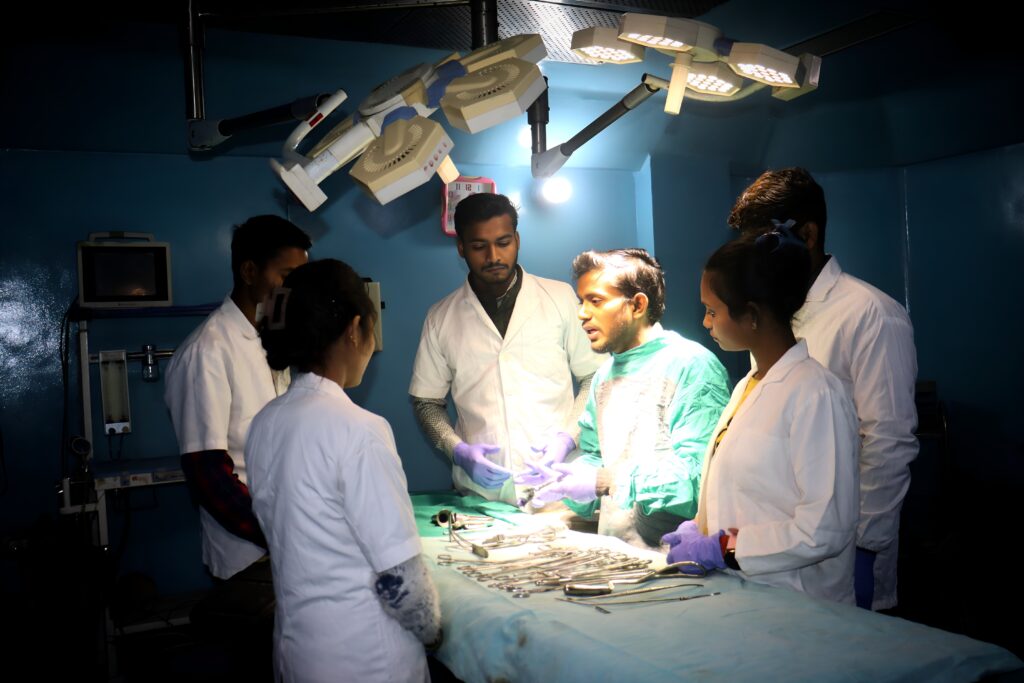M.Sc Nursing
Master of Science in Nursing (M.Sc Nursing) Course at Victoria College of Nursing & Paramedical Science
The Master of Science in Nursing (M.Sc Nursing) is an advanced academic program designed to prepare registered nurses for leadership roles in nursing practice, education, research, and administration. This course focuses on developing advanced clinical skills, critical thinking, and evidence-based practice to enhance patient care and nursing practice.
Course Duration
The M.Sc Nursing program typically lasts 2 years. The curriculum includes both theoretical coursework and practical training, often requiring students to complete a research project or thesis as part of their degree requirements.

Curriculum Overview
Core Subjects:
- Advanced Nursing Theory
- Nursing Research Methodology
- Advanced Pathophysiology
- Advanced Pharmacology
- Health Assessment and Diagnostic Reasoning
- Leadership and Management in Nursing
Specialization Areas:
- Community Health Nursing
- Medical-Surgical Nursing
- Pediatric Nursing
- Psychiatric and Mental Health Nursing
- Obstetric and Gynecological Nursing
Practical Training:
- Clinical rotations in specialized areas of nursing
- Hands-on experience in advanced practice settings
- Opportunities to mentor undergraduate nursing students
Research and Thesis:
- Conducting original research in a chosen area of interest
- Writing and defending a thesis based on research findings
Skills Development:
- Leadership and management skills in healthcare settings
- Effective communication and interpersonal skills
- Critical thinking and problem-solving abilities
Eligibility Criteria
To enroll in the M.Sc Nursing program, candidates typically need:
- A Bachelor of Science in Nursing (B.Sc Nursing) degree.
- Registered Nurse (RN) licensure.
- Some institutions may require entrance exams or interviews.
Job Opportunities
Graduates of the M.Sc Nursing program can pursue various advanced roles in the healthcare sector, including:
Clinical Roles:
- Nurse Practitioner (NP)
- Clinical Nurse Specialist (CNS)
- Nurse Midwife
Healthcare Administration:
- Nurse Manager or Director
- Healthcare Administrator
- Quality Improvement Coordinator
Nursing Education:
- Nurse Educator in nursing schools or colleges
- Clinical Instructor for nursing students
- Curriculum Developer for nursing programs
Research and Policy:
- Nursing Researcher
- Policy Analyst in health organizations
- Consultant for healthcare practices
Further Education and Specialization:
- Graduates may pursue doctoral degrees (Ph.D. or DNP) for higher-level research or academic roles.
- Specialization in advanced areas of practice or management.
Conclusion
The Master of Science in Nursing course offers an in-depth education for registered nurses seeking to advance their careers and impact patient care positively. With a growing demand for advanced practice nurses and healthcare leaders, M.Sc Nursing graduates can expect diverse job opportunities that contribute significantly to the healthcare system.
